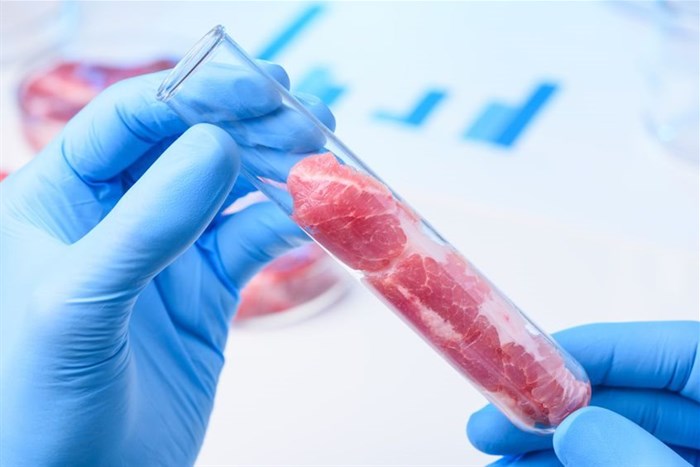Cultivated meat - meat products grown from cells in a laboratory - might sound like science fiction, but it's fast becoming a reality, says the South African Veterinary Council (SAVC). Although it's unlikely that we'll see lab-grown meat cuts on our supermarket shelves within the next decade or so, this new biotechnology does raise several questions for the veterinary industry, as well as for livestock farmers.

Source: ©nevodka via
123RFThe SAVC monitors scientific and technological developments that could affect veterinary and para-veterinary professionals with interest. While the SAVC does not hold a position on the ethics or economics of cultivated meat, it says, it believes sharing information about these sorts of emerging technologies will help enhance and add substance to the conversations around them.
Dr Paul Bartels, the CEO and founder of Mogale Meat Co – a cultivated meat company – also a wildlife veterinarian – believes this new technology will complement rather than replace existing farming and veterinary practices and will give rise to new economic opportunities.
Here, Dr Bartels answers some questions to better understand the implications of the rise of cultivated meat:
Cultivated meat is bio-identical to conventional meat, as it is cultivated directly from fat, connective tissue and muscle cells taken from an animal and grown in a bioreactor (laboratory apparatus used for growing organisms under controlled conditions).
What are the benefits of cultivated meat?
There are a number of important benefits:
• Only the desired cuts of meat are produced, with the potential to vary the fat quantity and quality as healthier options for consumers
• It will reduce the harmful climate impacts of our current food system (livestock produce more greenhouse gases than all the transport in the world combined)
• It will decrease the risk of zoonotic disease and antimicrobial (antibiotic) resistance
• It has the potential to feed more people with fewer resources
• It requires 95% less land and water to cultivate than conventional livestock farming
• It will revive export opportunities for fresh meat that were lost due to disease outbreaks
• It will yield new economic and employment opportunities, with people trained and upskilled in various science and engineering fields
What are the implications for farmers and veterinary and para-veterinary professionals?
Intensive meat production is problematic – from requiring substantial water use to clearing millions of square kilometres of natural habitat for producing fodder crops. It also results in rising animal and zoonotic disease outbreaks, requiring mass cullings, as well as antibiotic resistance.
South Africa has world-class livestock farmers, veterinary and para-veterinary professionals, and meat production systems that serve its people, as well as the meat export market. Cultivated meat has the potential to increase meat production without having to further transform natural habitats into fodder crops for intensive farming. Cultivated meat will protect our abundant biodiversity and address many of the United Nations’ Sustainable Development Goals.
There will not be any disruption to current livestock farming for many decades to come. More people need more meat, and it is that increased demand that can be met through cultivated meat. This means livestock and wildlife farming will continue with support from related industries, including the veterinary and para-veterinary professions.
Will lab-grown meat eventually be an affordable food option for South African consumers?
Cultivated meat will most likely only become commercially available in the next 10 years in South Africa, as it largely depends on regulatory approvals and the cost of production.
Current production costs are very high – although, as with any new technology, as scale-up takes place and product uptake increases, costs will drop.
What opportunities does this technology offer for livestock veterinary and para-veterinary professionals?
This new biotechnology industry will not take away any of the current livestock-animal health and meat-hygiene responsibilities. It will, in fact, open up new opportunities in multiple science areas.
Veterinary science research and development will "converge" with other scientific disciplines, including biotechnology, biochemistry, chemistry, metabolomics (the study of small molecules), bioengineering, tissue engineering, process engineering, crop science, animal science, nature conservation, nutrition, and meat and food science.
Here, the veterinary and para-veterinary professions are destined to play a key role in this new and exciting high-tech approach to food security.
I believe there will be some initial resistance to the idea of this new industry. However, with adequate education and knowledge transfer, I hope people will come to realise the tremendous opportunities and benefits that this exciting food industry development presents.



































